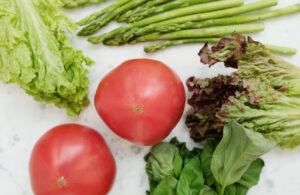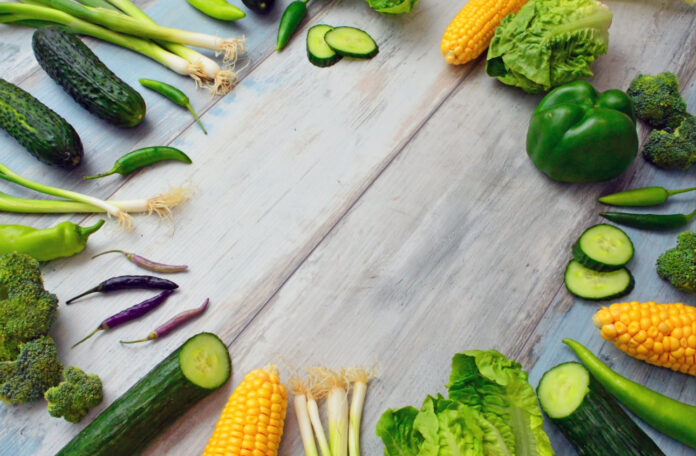Nel vasto panorama delle pratiche agricole, l’agricoltura biologica si distingue come un faro di sostenibilità e salute. Ma cosa si intende esattamente per agricoltura biologica e cosa la differenzia dai metodi agricoli convenzionali? Approfondiamo le complessità di questo approccio ecologico all’agricoltura ed esploriamo le sue implicazioni sia per la salute umana che per il benessere ambientale.
Un Paradigma Senza Chimica – I Principi Fondamentali dell’Agricoltura Biologica
Alla sua base, l’agricoltura biologica vieta l’uso di sostanze chimiche sintetiche come pesticidi e fertilizzanti sintetici. A differenza dei loro equivalenti convenzionali, queste sostanze chimiche sono derivate da composti artificiali prodotti in laboratori e realizzati su scala industriale, in particolare nelle fabbriche petrolchimiche. L’agricoltura biologica, d’altro canto, si basa esclusivamente su input derivati da “sostanze naturali o da sostanze derivate da fonti naturali”. Di conseguenza, l’agricoltura biologica permette solo 363 sostanze, rispetto alle 2668 consentite nell’agricoltura convenzionale.
Navigare tra Sostanze Naturali Controversi
Sebbene l’agricoltura biologica promuova soluzioni naturali, non tutte le sostanze naturali sono prive di controversie. Alcune sostanze naturali o naturalmente derivate utilizzate nell’agricoltura biologica possono ancora presentare sfide per la salute umana e/o l’ambiente. In risposta, l’Europa ha compilato un elenco di 77 sostanze autorizzate per l’uso nell’agricoltura biologica ma considerate “candidati per la sostituzione”. Questi composti sono ritenuti particolarmente preoccupanti per la salute umana o l’ambiente ma rimangono autorizzati in attesa dell’identificazione di alternative adatte.

Decodificare le Etichette Biologiche – Navigare nel Paesaggio delle Certificazioni
L’introduzione di etichette biologiche, come il logo Euro-foglia dell’UE e Demeter, fornisce ai consumatori informazioni vitali sui metodi di produzione e sugli standard di qualità dei prodotti biologici. Queste etichette garantiscono che i produttori biologici limitino l’uso di sostanze chimiche sintetiche secondo criteri stabiliti. Tuttavia, mentre queste etichette offrono garanzie riguardo ai metodi di produzione, non garantiscono l’assenza di pesticidi o residui chimici nel prodotto finale.
Oltre al Biologico – Esplorare il Concetto di “Zero Residuo”
Negli ultimi anni, è emerso un nuovo termine nel campo dell’agricoltura: “zero residuo”. A differenza delle etichette biologiche, che si concentrano sui metodi di produzione, l’etichetta “zero residuo” si basa sull’assenza di pesticidi nel prodotto finale, indipendentemente dal loro uso durante il processo di produzione. Sebbene questa etichetta possa offrire un’alternativa valida alla certificazione biologica, specialmente in termini di costo, non affronta le preoccupazioni legate all’uso di pesticidi sintetici.
L’Agricoltura Biologica – Una Potenza Nutrizionale
Oltre ai suoi benefici ambientali e sanitari, l’agricoltura biologica vanta anche vantaggi nutrizionali. Frutta e verdura biologiche sono spesso più ricche di antiossidanti, vitamine e minerali rispetto ai loro equivalenti coltivati convenzionalmente. Inoltre, i prodotti animali biologici tendono ad avere livelli più alti di acidi grassi omega-3 benefici, offrendo ai consumatori un approccio olistico alla nutrizione e al benessere.
Abbracciare l’Agricoltura Biologica per un Futuro Sostenibile
L’agricoltura biologica rappresenta una soluzione multifacetica alle sfide contemporanee nella produzione e nel consumo alimentare. Priorizzando la tutela ambientale, la salute umana e la qualità nutrizionale, l’agricoltura biologica offre una via verso un sistema alimentare più sostenibile e resiliente. Come consumatori, abbracciare i prodotti biologici può non solo sostenere il nostro benessere ma anche contribuire alla conservazione del nostro pianeta per le generazioni future.
Ig – @fairness_mag




